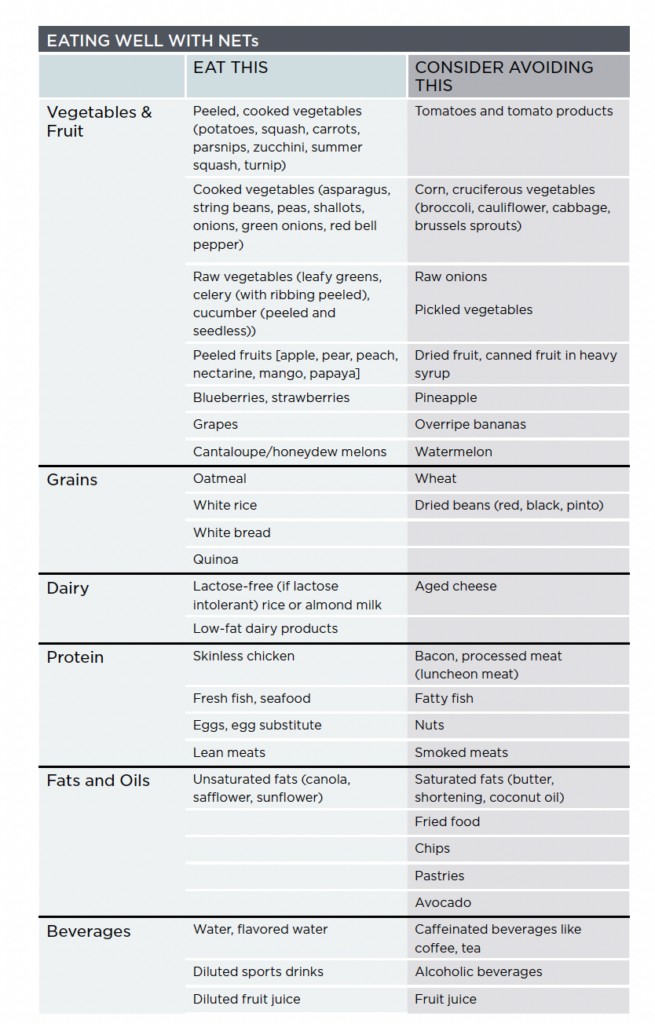Home » For Patients » Nutrition & NETs
Proper nutrition helps support your cancer treatment by helping you maintain your general health throughout your treatment, enhancing your quality of life and minimizing nutrition-related side effects.
By paying attention to what, when, and how you eat, you can ease troublesome symptoms caused by NETs. NETs and NET patients vary quite a lot from one to the next, and the best approach to improving your nutrition varies just as much.
A majority of patients who have a NET say they need to make dietary changes as a result of their disease. Pay attention to your body’s response to different foods and what you can and cannot tolerate. Finding what you can and cannot eat can be a process of trial and error. Your ability to tolerate certain foods can change from time to time. Some people with NETs find they can eat a certain food when it is cooked, but not when it is raw. As a rule of thumb, choose foods and drinks that are gentle on your digestive system.
Minor adjustments related to when and how you eat can help alleviate diarrhea for those who have NETs.
To reduce the frequency and severity of gastrointestinal symptoms, try to reduce or cut the consumption of the foods you find irritating. As your triggers for symptoms may differ from other patients, it is helpful to keep a food diary until you identify the foods that are irritating or helpful for you.
If you are experiencing digestive problems, avoid highly processed foods and carbonated beverages as well as foods that are high in:
Talk to your doctor about your diet and consider asking for a referral to see a registered dietitian with expertise in nutrition for patients who have a NET. Work with your treatment team on a personalized nutritional plan to support your health. Your medical history and any other health conditions will drive your daily food choices. Some of the food choices others have found helpful are included in the chart below but work to develop modifications based on your personal experience.

GI Troubles, Diarrhea and Diet, by David Richards, MD
NET Nutrition and Supplements, by Leigh Anne Burns, M, RN, LDN
NETs Nutrition, by Luz Chavez, MS, RD, CSO, LDN
Learn about other NET patients and their journeys here.
Learn more about NETRF funded research here.